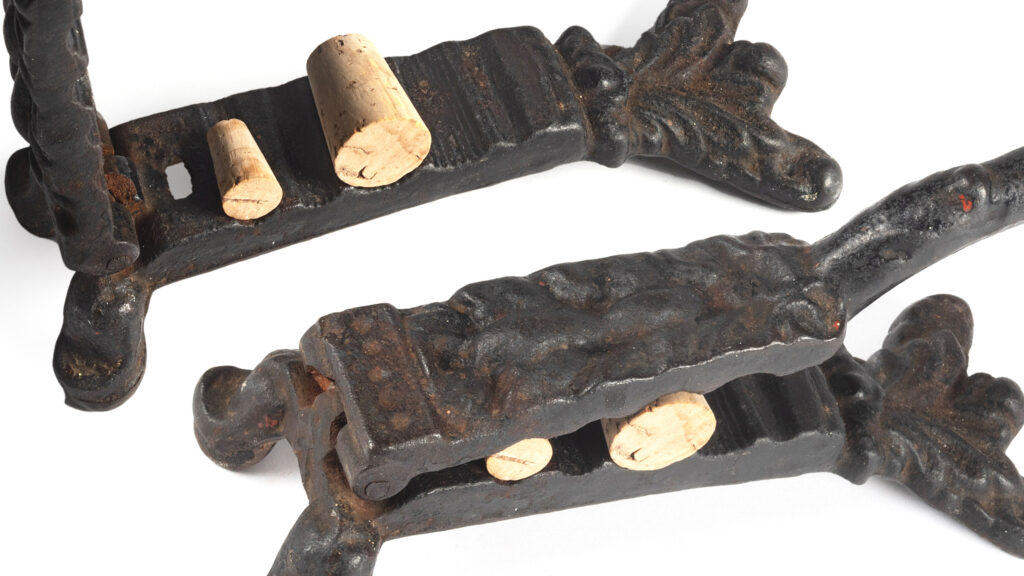
When Arthur J. Dodd (1849-1923) arrived in Glen Innes, northern NSW, there was no telling the impact he would have over the next fifty years. Born in Kent, England, he set his sights on becoming a chemist as a young person and, in his early twenties, honed his skills as a sick bay attendant for […]
Read More…
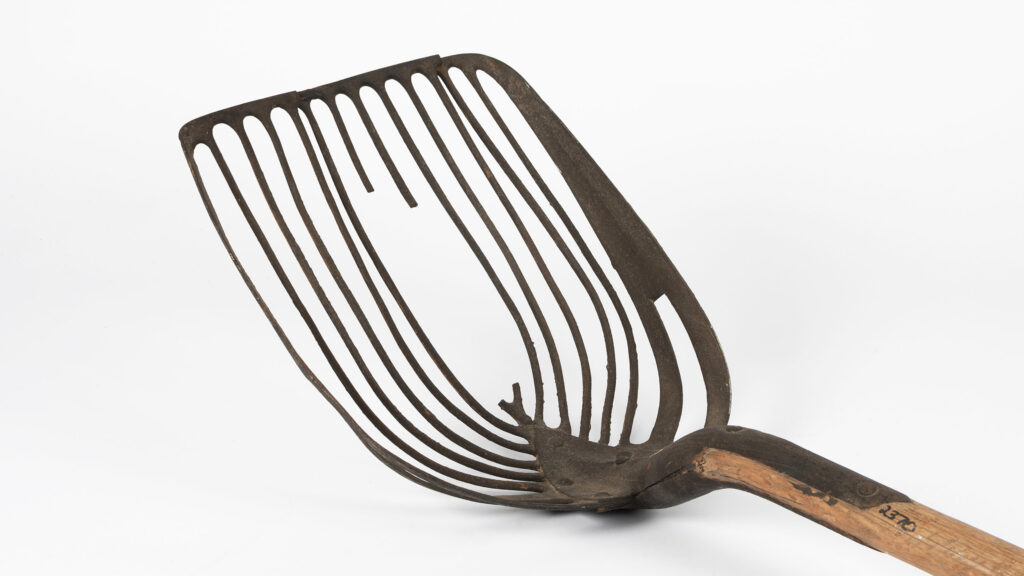
Experiment farms were born of a desire to figure out what agricultural practices worked best in any given region. The government hoped that funding farmers to test a range of crops and cultivation methods would result in the local industry generating higher yields and, in turn, higher revenue. Established in 1901, the Glen Innes Experiment […]
Read More…
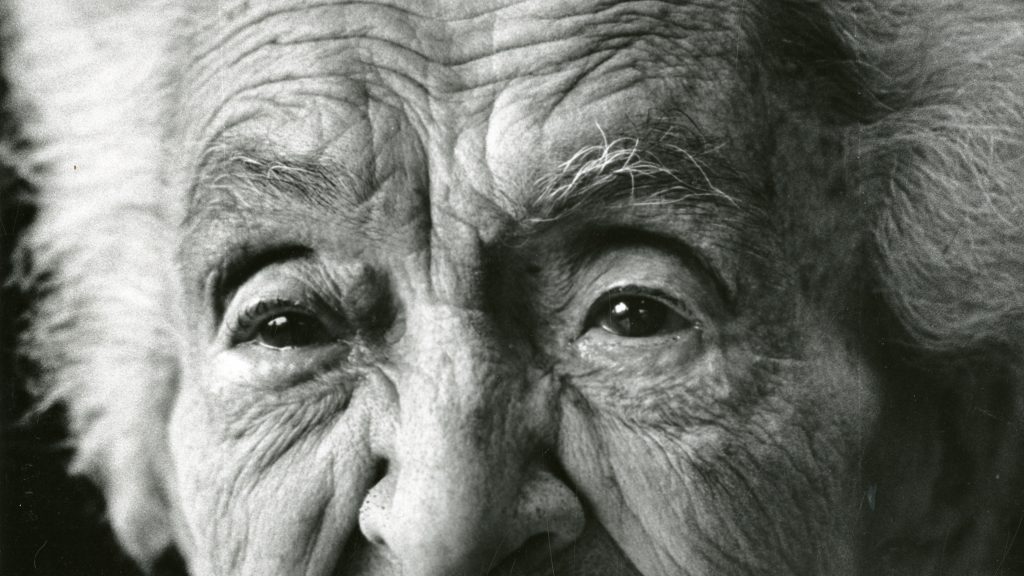
To say that Esther Batstone (1888–1992) led a full life is an understatement, a life that appears etched into her face. These two photographs show Esther in the latter years of her life. The first, aged 92 at home in Guinea Street and still looking sprightly and the second, aged 103 at the Marianella Aged […]
Read More…
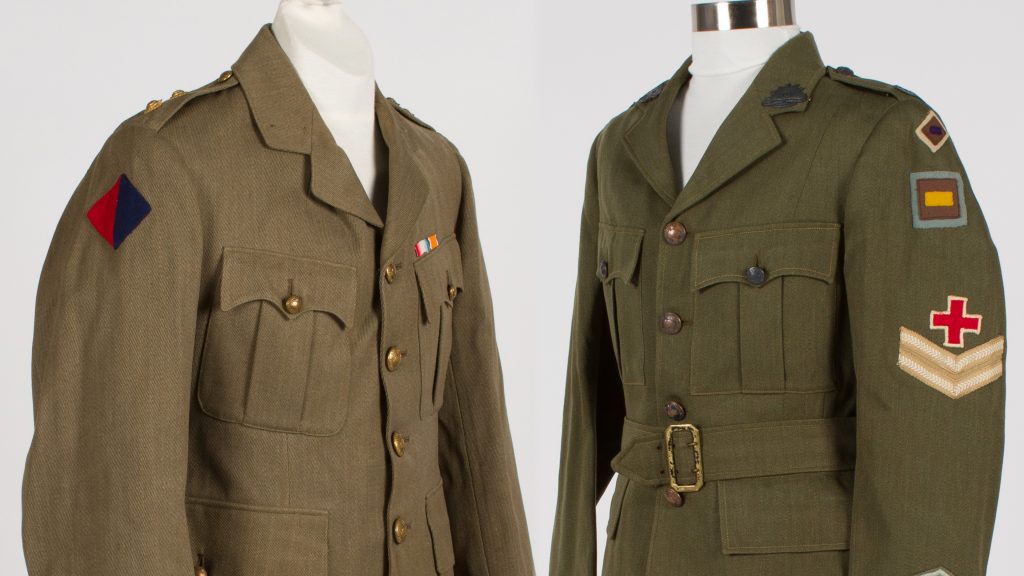
The two uniforms presented here belonged to Arthur Donald (Donald) Watson (1889–1934) and his daughter Patricia Elizabeth Watson (1920–2003) respectively and cover both World Wars with the ribbons, patches and badges detailing their service and rank. Donald’s service is a story in two parts. After serving with the 9th Regiment of the 1st Australian Light […]
Read More…
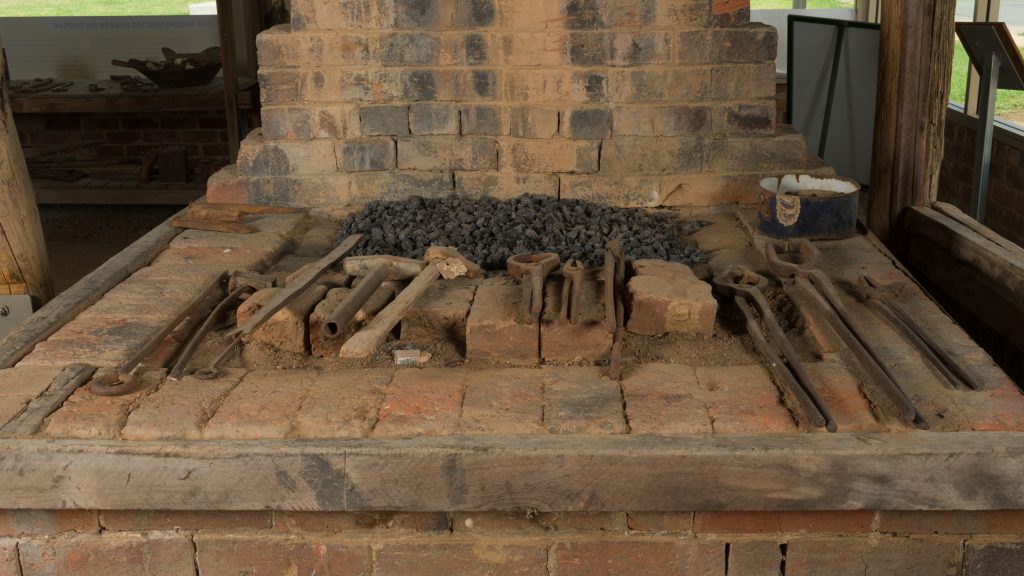
Two parts reliant on each other, the forge and bellows were the fire-breathing heart of Headlie Taylor’s (1883-1957) blacksmith workshop. To heat metal to the point it became malleable enough to shape, Taylor would have heated this forge to temperatures greater than 1100°C with the help of the bellows. With each pump of the bellows, […]
Read More…
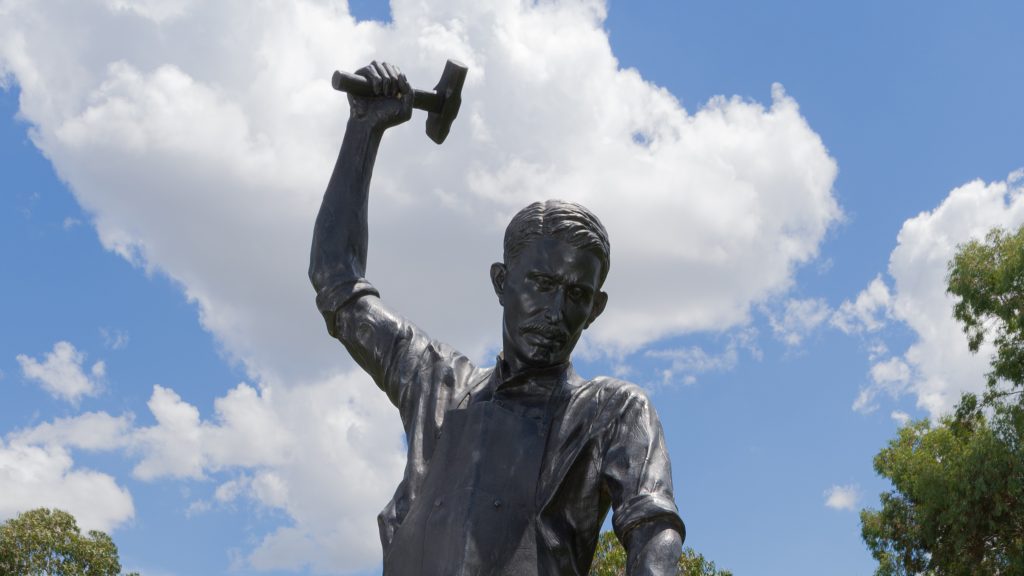
Hammer held aloft, the man prepares to bear down on the hot metal. He strikes it until it forms the shape of a cog which fits like a puzzle piece into his new invention. Over thirteen months, Melbourne sculptor Paul Smits skilfully captured this moment in this bronze sculpture for the Headlie Taylor Header Museum, […]
Read More…
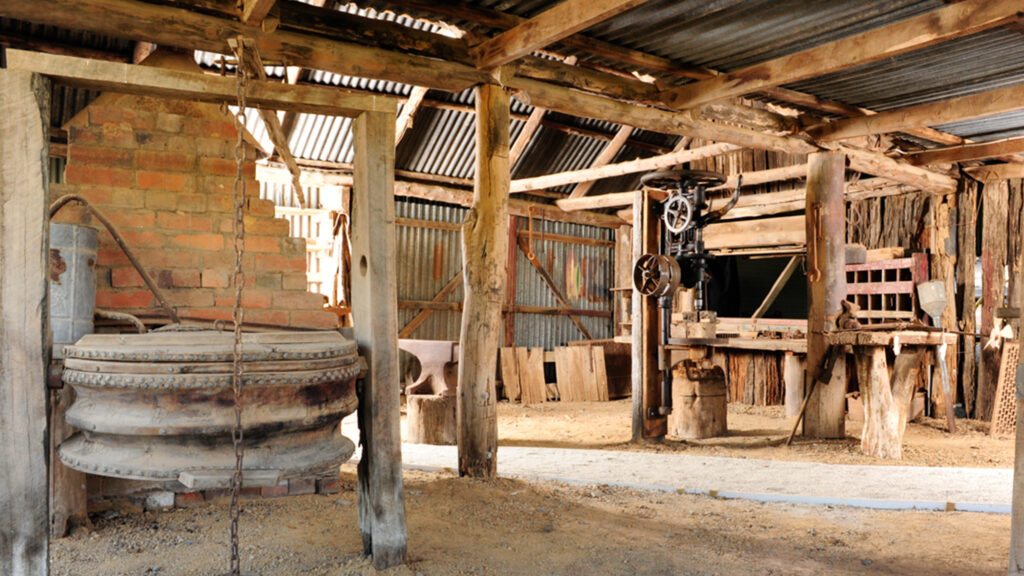
Those familiar with Headlie Taylor (1883-1957) might feel inspired upon entering his humble blacksmith workshop. The building was originally constructed by his parents as part of their family farm, ‘Emerald Hill’ near Henty in southern NSW, in 1880. Emblematic of farm buildings of the time, the functional shed had an earth floor while the pole […]
Read More…
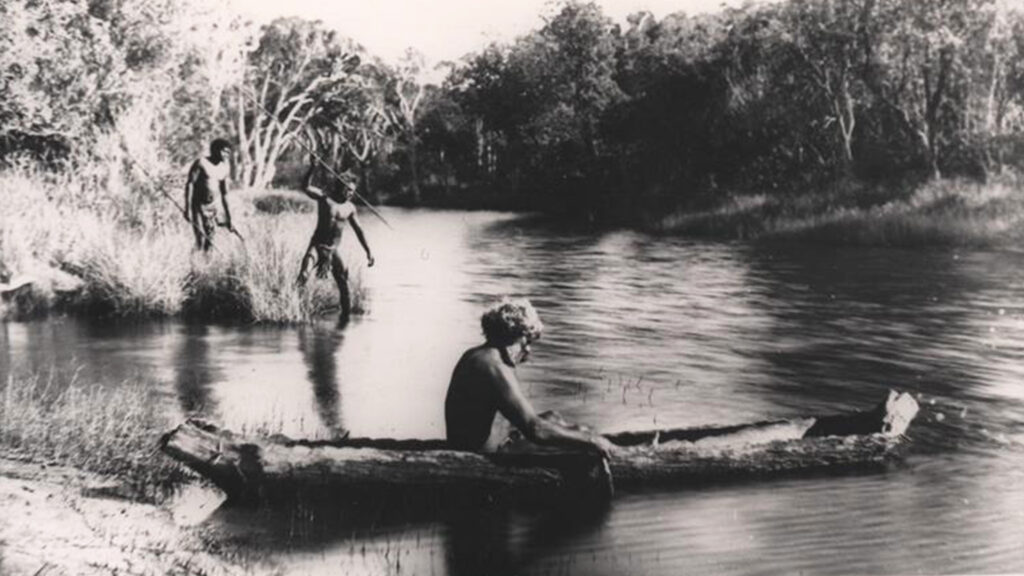
Aboriginal and Torres Strait Islander peoples are advised this story reflects on colonial violence inflicted upon Aboriginal people and contains the names of deceased persons. ‘Blackmans Point (southern side) is a place I lived with my mob. All the children were brought up gathering and eating fish, crabs and oysters from the river.’ We lived […]
Read More…
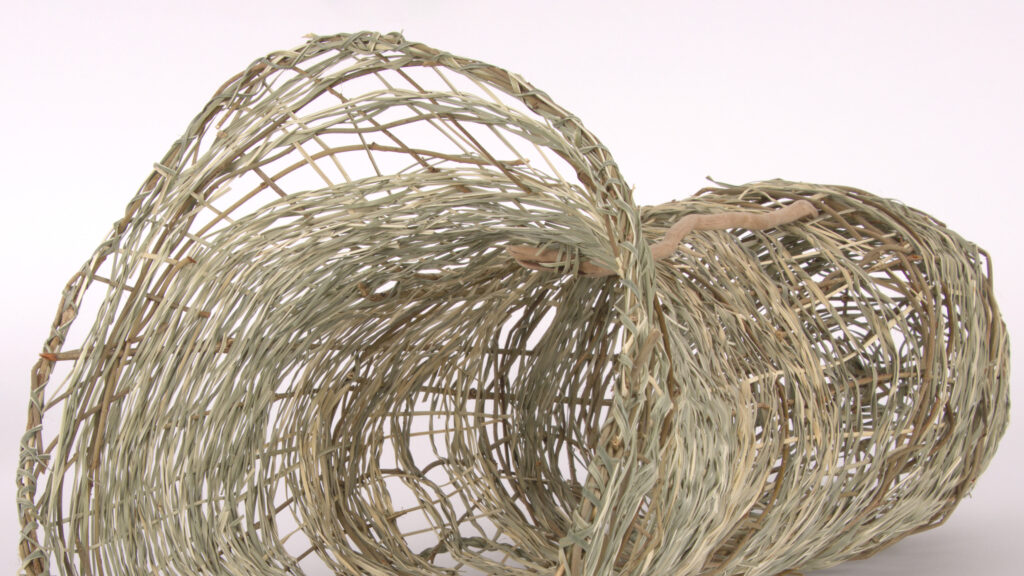
This weaving work Buna Fishtrap (fishtrap for beach) was handcrafted by Patricia (Trish) McInherny in 2024 using natural resources collected and gathered on Birpai Country, including invasive vine and native Lomandra (mat rushes). The techniques of random patterns and string weaving produce a strong vessel, used traditionally to catch and contain small bait fish. The […]
Read More…
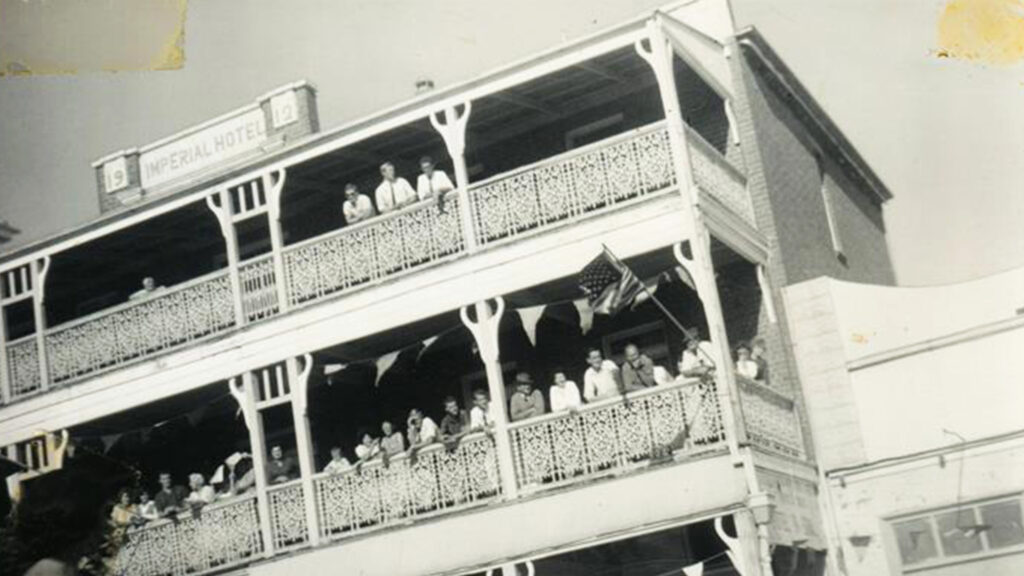
A man with an eye for passing trade, Mr John Selfe built the Imperial Hotel on what was to become Wee Waa’s main road. The 40-room hotel had already changed hands a few times and was leased by Mr W. Maher when a fire consumed the street on Valentine’s Day in 1912. The blaze started […]
Read More…











